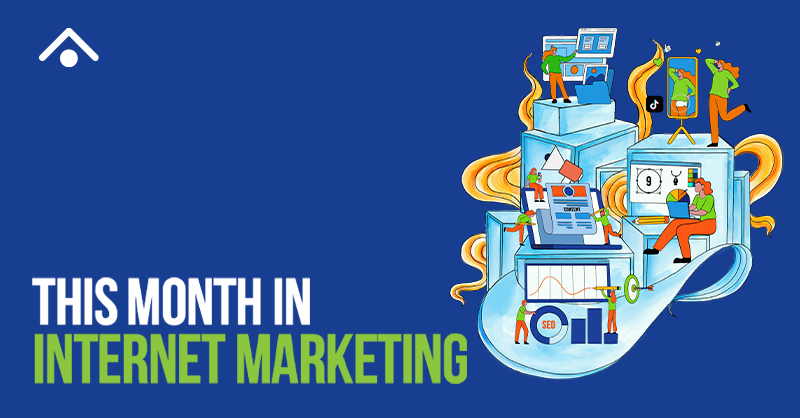Seth Godin, Tim Ferriss, and Neville Medhora have established themselves as personalized marketing authorities. However, they didn’t start out that way. They were just average people like you and me. Though their approaches are different, there’s a lot you can learn from the way in which they communicated with their customers and learned to deliver what the customer needed. That’s a very important factor that led to their success. It may sound trivial, but many businesses underestimate just how important it is to adapt the product to the audience – not the other way around.

Personalized Marketing Centerpiece: You Just Have to Ask And Listen
Sometimes, all you need to do to find out what your customers want is to simply ask them. Tim Ferriss does this all the time on his blog. There’s never a post that doesn’t end with a question or some food for thought. Neville Medhora, who provides free marketing lessons on his blog, also asks for feedback on his posts. Both of these professionals encourage both positive and negative feedback. However, they do have the advantage of being the face and voice of their personal brands.
A company might not have that perk, so they can’t ask in person, as it were, for feedback. However, you can always use an online survey, like this Petsmart customer feedback survey to gain some insights. Look at the comments section on that post as well. The reviews are a mixed bag, but all of them provide a savvy marketer with many resources to work with.
Which brings me to my second point. It’s not enough to just receive feedback. Sure, Seth Godin, Neville and Tim receive a lot of positive reviews and praise. However, this type of feedback doesn’t help you grow. It’s the negative feedback that helps you grow. That’s why Seth, Neville and Tim make sure to ask for both positive and negative feedback – and more importantly, they listen to it. It’s the easiest way to find out what a customer wants. Sometimes, certain customers want to be polite. Maybe they did have a genuinely positive experience interacting with your business. You need to find a way to make that experience even better, so you can keep them coming back. In the process of perfecting your personalized offers, you can also discover new ways of attracting new customers that might still find reasons to be skeptical.
Focus on the Person, Not the Marketing
What’s remarkable about Seth, Neville and Tim is not just how they managed to become so popular in a relatively short amount of time, it’s the community they’ve created around them. Of course, the fact that they know what they’re talking about is extremely important. Their insights have proven to be valuable for many of their customers. However, they also know how to package and deliver it right.
The point about listening to your customers mentioned earlier still stands. You need to be in a constant dialogue with your clients if you’re going to deliver a positive experience consistently. However, it’s not enough to just personalize an offer to suit your customer. You need to get to know them and put their experience ahead of selling your products.
If you skim through Seth’s blog, you’ll notice there are all sorts of posts there. Some are indeed marketing related, but some seem to have nothing to do with marketing. These blogs are related to personal experiences, common frustrations, and worries. Seth manages to create a personal connection with his customers simply by alternating the subject of his posts.
Tim often features stories of his clients, but he focuses a lot on their experience rather than how much his self-help book contributed to their success. Neville also includes plenty of references to his satisfied customers and focuses a lot on their unique experiences.
Seth Godin sums it up quite nicely in his short post about seeing brands as stories. He argues that all brand stories are about you, the customer, and what you love. That’s what makes you fall in love with a brand. Seth, Tim and Neville show that if you focus on the consumer almost exclusively, sales will eventually come on their own. Learn how to make friends, and you won’t have to worry about getting customers.
What Do You Have to Offer Them?
Focusing on the customer brings us to the next issue that these three marketing gurus have managed to solve brilliantly. Every business has its competitors, and there are probably dozens of similar products on the market. When it comes to public speakers and marketing experts, it can be even more challenging to find an edge since the product you’re selling is not a concrete one.
The question all three had to answer implicitly was “What do I have to offer?” It’s a question every business has to ask itself when they first start out. It’s also an issue which is vital for personalized marketing. It goes hand in hand with the previous idea of focusing on the customer. Once they identified their target audiences, Neville, Seth, and Tim had to figure out what they could give them that nobody else could.
The most important thing they had to offer was their own unique experience. To some, it may seem like a very small thing to offer. However, it worked, in all three cases. Each of them set out with a very personal, honest message about who they were and what they did. They didn’t try to sell their know-how as if it were the only thing you could need to be successful. They used their experience to craft a method that worked for them. Their hope was that someone might have gone through a similar experience and found value in the lessons they learned. In other words, the most important thing they had to offer was their personal brand.
This is a smart way to structure a personalized marketing campaign. Put yourself in your customer’s shoes and see what would make sense for them. It’s possible not everyone will relate to that experience, but the ones that do can grow to be some of the most loyal clients you’ll ever have.
We All Have Things in Common
In the end, the most important tool a marketer has at their disposal is empathy. Tim, Seth, and Neville have created very different personal brands. Empathizing with your customer is going to help you offer them solutions they might not have even considered.
So, how did they use it in practice? For one thing, they never completely separated their personal interests from their brands. Every part of their experience and growth process is out there, on their blogs and podcasts, and you can check it out for yourself.
Tim makes two very nice points in this lesson on success. He talks about the reason why he failed to sell a few hundred copies of his book. Tim says the two reasons for this fiasco were that never tried to think like his market, he only thought of his market. The second piece of advice he offers is to design the product after you’ve determined what your market is.
It’s a mistake many of us are liable to make, especially when we have so many tools to measure our relationship with our customers. Thinking like your client and empathizing with them is something that has to come from within. It can’t be measured, and it can fail. However, when it comes to personalized marketing, it’s the most important thing you can do.
These are just some of the things I’ve learned from following Neville, Seth, and Tim. When they put these ideas into practice, each has a different approach that reflects the brands they’ve created around them. It’s up to you to decide how you tailor them to your own needs. I’m sure there plenty of other things we can learn from their stories.





